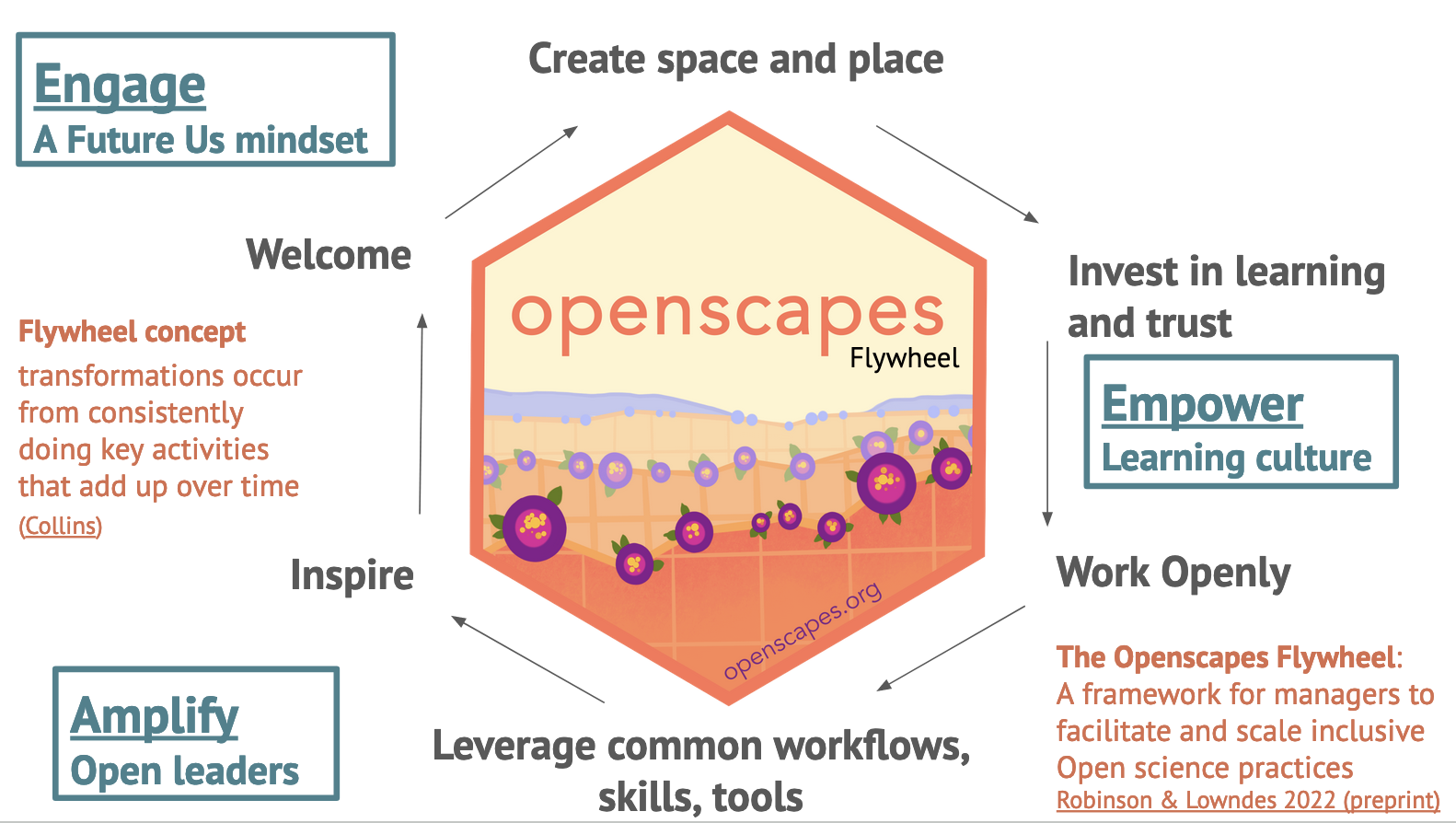NASA Openscapes: Approaches and Stories of Kinder, Open Science in the Cloud
In December at the AGU Fall Meeting in San Francisco, we were so grateful to connect with so many colleagues in person. We supported NASA Mentors Cloud Workshops on Sunday and organized a Happy Hour with colleagues from across NASA and the Open Science world. We attended and gave talks thoughout the week in addition to making many great connections in the Exhibition Hall, Poster Hall, and outside in the sun. This is a brief summary of our Friday 8-minute talk titled NASA Openscapes: Approaches and Stories of Kinder, Open Science in the Cloud.
Quick links:
- Slides from our talk
- NASA Openscapes links to all presentations
- Our NASA-Openscapes AGU Planning Repository - summary of our activities
How we work: Openscapes Flywheel
The Openscapes Flywheel is a tool for movement building (Robinson & Lowndes 2022). We developed this from the early days collaborating with the NASA Mentors and it is open source: available for you to reuse and fork as other groups are starting to do. We reach for the Flywheel as a tool for planning, implementation and communication, just as we reach for R, Quarto, and JupyterHubs for analysis, documentation, and cloud computing.
The Flywheel is a concept developed by Jim Collins, where transformations occur from consistently doing key activities that add up over time. The Openscapes Flywheel at its simplest form has six steps that we repeat daily, monthly, and over years. Starting from the bottom and going clockwise: Leverage common workflows, skills, and tools; Inspire; Welcome; Create space & place; Invest in learning and trust; Work openly.

We talked through what this looked like for the NASA Openscapes project in Year 1, and then again in Years 2-3 as the Flywheel gained momentum as the Mentor community grew and supported researchers on the Cloud.
Turning hundreds, thousands of times in ways big and small
What’s so exciting is that following these initial turns of the Flywheel, it is now turning hundreds, thousands of times in ways big and small: like when a researcher uses GitHub for the first time and then turns around to teach their supervisor, and when staff have the confidence to speak up in meetings with what they know from the broader open science community. We’ve shared these stories in several manuscripts and blog posts, including a cross-government collaboration:
The Openscapes Flywheel: A framework for managers to facilitate and scale Open science practices (Robinson & Lowndes 2022)
Shifting institutional culture to develop climate solutions with Open Science (Lowndes et al 2023)
Citation
@online{lowndes2024,
author = {Lowndes, Julie and Robinson, Erin and Openscapes Mentors,
NASA},
title = {NASA {Openscapes:} {Approaches} and {Stories} of {Kinder,}
{Open} {Science} in the {Cloud}},
date = {2024-01-18},
url = {https://openscapes.org/blog/2024-01-18-agu-talk-2023},
langid = {en}
}
